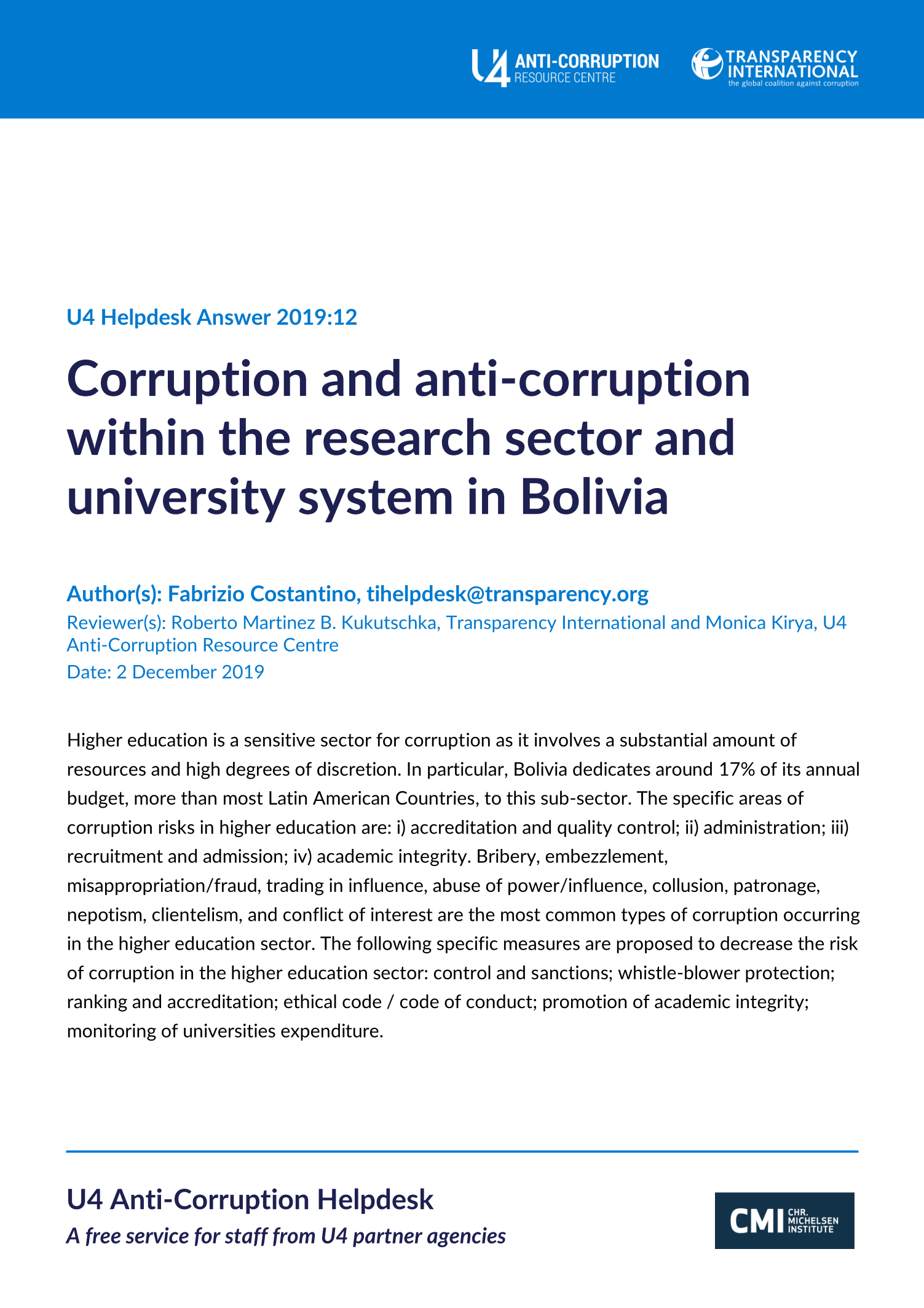Main points
- Bolivia dedicates around 17% of its annual budget to education, more than most Latin American countries.
- Bolivia does not have specific regulations to address corruption in higher education as it refers to the broader anti-corruption legal framework, which has been consistently reformed in the last decade.
- The higher education sector features four main areas of risk: accreditation and quality control; administration; recruitment and admission; academic integrity.
- The following specific measures are proposed to decrease the risk of corruption in the higher education sector: control and sanctions; whistleblower protection; ranking and accreditation; ethical code/code of conduct; promotion of academic integrity; monitoring of universities expenditure.

